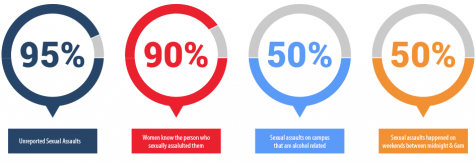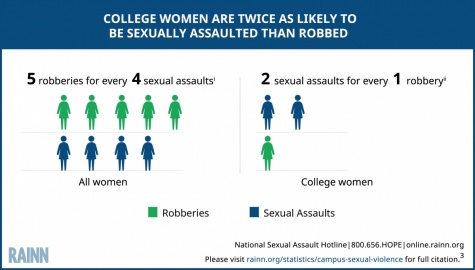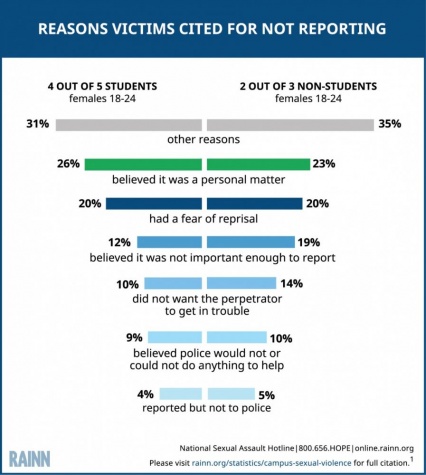
Brooklyn Staab | Student Life Editor
April 4, 2021
During a Minnesota Supreme Court Case last week, it was decided that if a woman chooses to be intoxicated, she is willingly putting herself at risk for any harm done to her. This means laws against sexual assault will not extend to her, despite her obvious inability to consent while under the influence. This does not apply to those who were involuntarily intoxicated (if it can be proven that it was involuntary).
Francios Momolu Khalil met a young woman after she was supposedly denied access from a bar due to her intoxication and took her back to his house. In the original court case, he was charged for rape in the third degree, because the woman was both physically and mentally impaired.
However, this was overturned in the Minnesota Supreme Court, because the woman did not fit the state’s description of “mentally impaired,” even though she did not remember any consent to the actions he took upon her. Khalil’s defense attorney is taking the angle that just because she regrets it, doesn’t mean it was rape. Remembering and regretting are different things, and she deserves justice.
Khalil has been acquitted of three sexual assault cases prior to this incident, so why is he continuously getting away with it?
Rape culture is nothing new; it continuously prevails no matter what women try to do to stop it. These types of actions from courts encourage rapists, and encourage other states to follow in their footsteps, making justice for sexual assault survivors that much harder to achieve.
“New decisions within the state legislature usually reciprocate within surrounding states or alike demographics in each state, which horrifies me in how other states’ men respond or duplicate these actions,” junior Bethany Padilla said. “But to protect rapists and abusers is disgusting.”
When some areas believe they can get away with it, others follow in their twisted gross shadow. We see it all the time.

“Every 73 seconds, an American is sexually assaulted. And every 9 minutes, that victim is a child. Meanwhile, only 5 out of every 1,000 perpetrators will end up in prison,” RAINN Statistics states.
So, creating laws that encourage sexual assault will only make safety a larger concern, and obviously not just for women.
“I know that my consent is worth more than my government values, but we must demand that it does,” Padilla said.
Women in every country are threatened daily, whether we want to admit it or not. Arguing over whether it is 50% or 97% of all women is useless. Anything above 0% is too many, end of story.
“It makes me feel unsafe and I feel bad for the women who just want to go out with their friends and have a drink but have to worry about getting taken advantage of and not receive any justice,” junior Brenna Lynch said.
If a man can go out and drink without the fear of being sexually assaulted and blamed for it, women should be able to do the same. Women should not have to give up common liberties that most men enjoy without a thought in order to achieve some sort of safety. But sadly, we can’t.

Sexual assault is a serious issue for everyone, especially women of color. Many Black women are unable to report rape, meaning many statistics do not accurately cover them. Women of color face violence as being a woman, on top of racially charged violence against them. Ending rape culture and the violence against women must include ending racism and the brutality that it provokes.
“It hurts me to know my sisters and our rising generations will still be affected with the same struggles of women many generations before,” Padilla added. Legislation needs to protect the survivors, not rapists, and elected officials should not be allowing such horrific violence to prevail. Too many rapists have been liberated to walk free without consequence, while too many women in society change their daily lives to avoid men like this, and that must end.

Leave a Reply